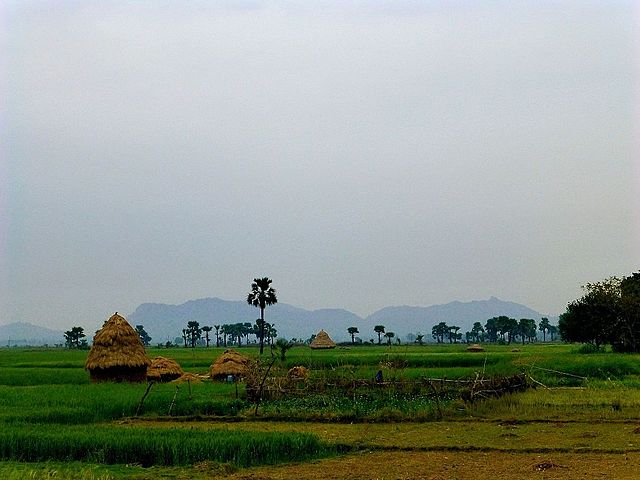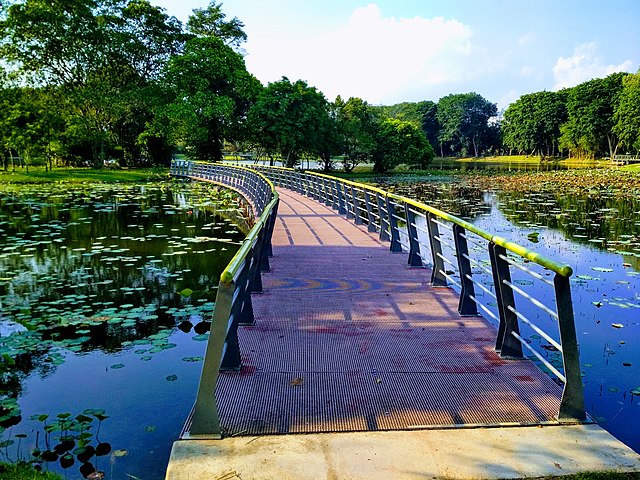
Thammasat University students interested in Malaysia, political science, history, ASEAN studies, electoral politics, democratization, and related subjects may find it useful to participate in a free 7 September Zoom webinar conference on Young Voters and Malaysia’s Future: New Hope or False Dawn?
The event, on Wednesday, 7 September 2022 at 9am Bangkok time, is presented by the Institute of Southeast Asian Studies (ISEAS) – Yusof Ishak Institute Singapore.
The TU Library collection includes a number of research studies on Malaysian electoral politics.
Students are invited to register for the webinar at this link:
https://us06web.zoom.us/webinar/register/WN_zpUD0E6cQSywrhtYvO49pA
As the webinar description posted online explains:
About the Webinar
Malaysia’s Undi18 constitutional amendment has expanded voting rights to youths aged 18 and above, and the concurrently instituted automatic voter registration removes a hurdle to participating in the electoral process. Malaysia’s youth are, of course, multi-faceted. Many show signs of political awakening, fitting the popular portraits of courage and openness to change. They campaigned to ensure that the Undi18 promise of the 14th General Election was fulfilled, formed the Malaysian United Democratic Alliance (MUDA) party, publicly demonstrated against corruption and high cost of living, and championed various causes such as the climate crisis and education inequality. Many others appear disengaged from the political process and contented with the status quo. It is not hard to find the other popular contrasting portraits of youth: timid and self-absorbed, assimilated by consumerist culture and an education system that stresses conformity and deference.
How will Malaysia’s young adults and new voters impact on the country’s future? How will the political establishment engage with them? Will the young vote in the 15th General Election and if so, what matters most when they cast their ballots? This webinar will grapple with these questions, from the perspective of the current administration’s youth engagement and the findings of the nationwide Youth Aspiration Manifesto Survey.
The speakers will include Dato’ Sri Ti Lian Ker, Malaysia’s Deputy Minister of Youth and Sports and Mr. Jason Wee, cofounder of Architects of Diversity (AOD) Malaysia, a non-profit organization that aims to bridge communities and identity groups among youth for justice, peace and a sustainable future.

Architects of Diversity is a non-profit that aims to bridge communities and identity groups among youth in Malaysia for justice, peace and a sustainable future.
We build spaces that facilitate interpersonal understanding and intergroup relationships through empathy, vulnerability and non-violent communication…
Empowering youth as leaders of multicultural Malaysia
If enough youth grow up valuing diversity and inclusion, national change can be ushered in the near future.
At the heart of our youth programmes, we aim to promote respect for others, positive attitudes to diversity in society, gender sensitivity, mutual trust and understanding. Through progress towards these intrapersonal and interpersonal goals, we lay the foundation for mutual respect, justice, social inclusion and good governance in the wider society. AOD does this by means of empathy built through intimate interpersonal relationships across identity groups that will create positive social dynamics for co-living…
Preparing youth as champions for a Malaysia for all
Our youth programmes prepare youth with the knowledge, motivation and skills to engage with larger issues of exclusion and discrimination in Malaysia. By investing in individual-level change today, we plant the seeds for social change in the future. Our programmes have consistently been able to reduce prejudice levels among youth and empowered them to engage as youth changemakers…
Developing new curricula and content to navigate an increasingly challenging world
While various efforts to teach values such as respect and harmony are emphasised, the Malaysian education system is not equipped with contextual knowledge on issues such as discrimination and group-based conflict in a democratic setting. Our programmes employ innovative methods and content that challenge conventional knowledge on Malaysia’s racial system and invites youth to envision a more inclusive and equal nation.
As Mr. Wee explained to Tatler Asia last month,
AOD started as a United World College Short Course in 2018 where we brought 31 students from all over the country together for one week and conducted sessions on identity, discrimination and conflict. The friendships and understanding we witnessed between participants of different backgrounds were unlike any I had seen before. Immediately after graduating from college in 2020, I had the opportunity to go full time and grow AOD even further…
Our work aims to create a more just and equitable nation for all identities. If enough youths grow up valuing diversity and inclusion, national change can happen. AOD acts on the question: How do we build social resilience against discrimination and injustice to turn the tide?
We have three approaches—youths, educators and institutions. AOD has empowered over 500 youths as agents for multiracial statecraft and conflict resolution across various workshops and camps.
We are the first to pioneer local diversity, equity and inclusion education by preparing teaching materials and training educators as champions against prejudices. AOD also campaigns for anti-discrimination in education through research and strategic communication, with direct action in the pipeline…
For a more equitable future to begin, we need those in the positions of power to advance ideas for combatting identity-based injustice. AOD is building the set of knowledge, discourse and network that will enable Malaysians to make such change a reality.
We gather victim testimonies, develop policy discussions and equip advocates to raise the ability of a conscious public to resist polarising forces and demand for an inclusive society…
Malaysians need to embrace the messiness of diversity. We have become consumers of decades of patriotic campaigns that we shy away from difficult conversations on how the nation has failed certain groups.
For many minorities, this conversation can be really exhausting. Yet, I hope Malaysians can find their own space to challenge discrimination and champion inclusion in their own ways, be it in schools, in the workplace or on social media.

In March, Channel News Asia reported:
With a looming general election, the political parties are cognisant of the need to capture the youth votes. This is especially so following a constitutional amendment that lowered the voting age from 21 to 18.
Those interviewed by CNA noted that there is no exact formula for this exercise and a nascent understanding of youth voters’ concerns will have to begin with dialogue and engagement.
Significance of the Youth Votes
The Undi18 Bill became the first constitutional amendment to have support from both sides of the political divide back in September 2019, before it finally took effect on Dec 15 last year.
On Jan 14, the Election Commission (EC) announced that following the implementation of Undi18 and automatic voter registration, a total of 5.8 million new voters were added to the electoral roll of 15.3 million, bringing the total to 21.1 million voters.
Of the new voters, 1.2 million are aged between 18 and 20 while the rest are 21 years old and above who were unregistered previously.
The chairman of the Coalition for Clean and Fair Elections (Bersih) Thomas Fann projected that 18- to 40-year-olds would make up 12.2 million or 58 per cent of the total electorate if an election is held in the middle of next year.
His projections are based on the electoral roll and the population data from the Department of Statistics.
In the 14th general election in May 2018, voters aged between 21 and 40 made up about 41 per cent of the electorate.
“Young voters will be the kingmakers in the future elections. Whichever party or coalition that aspires to rule the country must appeal to this group. Ignoring them would be political suicide,” Mr Fann told CNA.

(All images courtesy of Wikimedia Commons)
